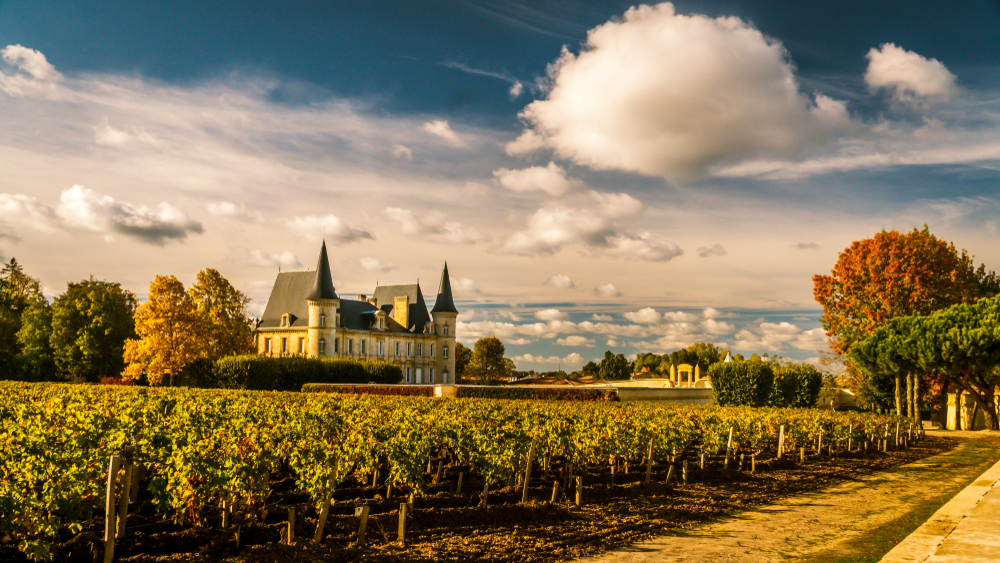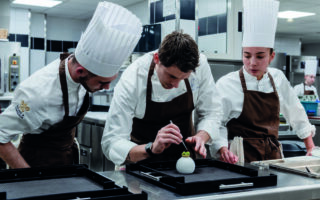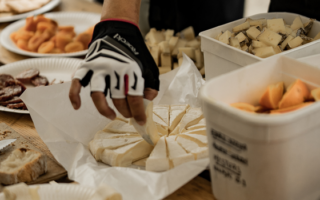
World’s top 50 vineyards for wine tourism
The best vineyards to visit in France
The world’s 50 best vineyards list for 2023 has been revealed, with nine from France being recognised as amongst the very best for wine tourism.
The prestigious annual list, compiled by a global panel of experts, recognises the best in wine tourism around the world, and selects vineyards where tastings, tours and accommodation set them apart.
The 2023 ceremony, held in Rioja in Spain, saw Catena Zapata from Argentina take the top spot, while Rioja’s Bodegas de los Herederos del Marqués de Riscal in Rioja came second. Chilean vineyard VIK took third place, Creation in South Africa fourth and Château Smith Haut Lafitte in Bordeaux completed the top five.
There were 23 vineyards from Europe in this year’s list with France boasting the highest overall number of wineries with nine in the top 50.
Château Smith Haut Lafitte has an impressive history dating back to the 14th century. In 1990, the estate was bought by former French Olympic skier Daniel Cathiard and his wife Florence, who have embraced biodynamic farming, with shire horses used for ploughing and woodlands and orchards surrounding the vines. They have also turned the vineyard into a luxury destination for tourists, with the five-star Les Sources de Caudalie offering timeless opulence. Dining options include the two-Michelin starred restaurant La Grande’Vigne, or more rustic fare at La Table du Lavoir. A spa offers Caudalie Vinothérapie and with a shop, wine bar, pool, gym, sauna, tennis court and more.
Eighteenth place went to Château d’Yquem, also in Bordeaux. This premier cru superieur estate located in Graves, on the left bank of the Garonne river, dates back to 1477, and vines have been planted here since 1711. Famous for its sweet wines thanks to the presence of noble rot, a bottle of the 1996 vintage once sold for £75,000, making it the most expensive bottle of white wine ever sold. Visitors can enjoy a tour and tasting, available daily (booking essential) and marvel at the pretty château and beautiful gardens.
In 19th place was another Bordeaux vineyard, Château Pape Clément, where grapes have been grown since the mid-13th century. Once owned by Pope Clément V, it is now under the ownership of entrepreneur Bernard Magrez, who has introduced artworks throughout the grounds, as well as hosting classical music concerts and festivals. As well as tours and tastings of this Cru Classé, you can take part in a workshops on blending and pairing too. Make time to visit the magnificent gardens and indulge in a spot of forest bathing to boot. And when you’ve built up an appetite, La Table du Château offers gastronomic delights with wine pairing options.
At number 22, we head to the Champagne region and Maison Ruinart. Established in 1729 by Nicolas Ruinart and famous for its Blanc de Blancs, Maison Ruinart’s chalk cellars 30m below the city of Reims are listed as a UNESCO World Heritage Site. A tour takes two hours, and is followed by a tasting. Brunches, tasting menus and dinners are all offered by chef Valérie Radou, and a rich programme of art exhibitions and installations add to the cultural experience.
Needing no introduction, Champagne Bollinger took 23rd place in the list. With its 179 hectares, 85% of which are in Grand and Premier cru vineyards, Bollinger is the last Champagne house to employ a resident cooper. Visits are by appointment only.
At number 31, Champagne Billecart-Salmon in Mareuil-sur-Aÿ has stunning gardens, designed in the 1920s, and is dedicated to organic and sustainable practices. Guided tours last two and a half hours and include the gardens and vineyards, plus a tasting.
Château Pichon Baron, in Bordeaux’s prestigious winemaking subregion of Pauillac, was listed at number 33. Established in 1694, it boasts a stunning 19th-century castle, complete with fairy-tale turrets. Guests are welcome daily but advance booking is essential. A tour of the vineyards ends with a tasting of three wines, although visits can be tailored to cater to individual interests.
At number 34, Château de Beaucastel in the Rhône Valley is world famous for its much lauded Châteauneuf du Pape and enjoys a rich history dating back to 1321 and Pope John XXII. Owned by the Perrin family, who are pioneers in sustainable and organic practices, it is a fascinating place to visit.
Another household name, Veuve Clicquot takes its place at number 46. Founded in 1772, it was the first Champagne house to be run by a woman, the pioneering widow Barbe-Nicole Ponsardin Clicquot, who invented the riddling process by which champagne is turned by increments to loosen the sediment so it collects in the neck of the bottle. Visit the vineyards and learn more about the legendary veuve, explore the chalk cellars on the outskirts of Reims, listed as World Heritage sites by UNESCO, and enjoy tastings and food pairings.
Please note: we may earn commissions from tours booked through links on our site.
Latest posts:
- Fabien Ferré: Jumping from 0 to 3 Michelin Stars
- Sardines and onions summer tart
- Brocciu-stuffed sardines
- Mayors banquet: 2 Tonnes of Salmon & 33,000 Bottles of Wine
- Duck liver flan with port coulis
Lead photo credit : (c) Shutterstock
Share to: Facebook Twitter LinkedIn Email
More in French wine, Vineyards, Wine, Wine Tourism, World's Top Vineyards



